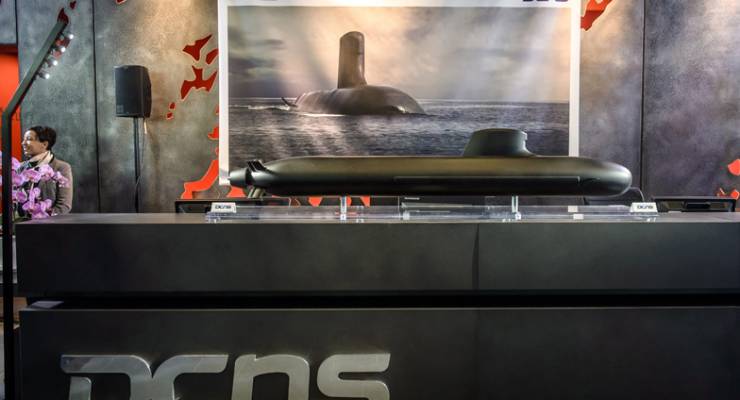
Multiple allegations of corruption in jurisdictions across the globe, as well as the spectre of murder in Malaysia and Taiwan, could threaten Australia’s newest defence contractor, French company Direction des Constructions Navales Services (DCNS), which was announced as the winner of Australia’s multi-year $50 billion contract to build 12 conventional submarines — beating arch rival Germany’s ThyssenKrupp, and a Japanese consortium led by industrial conglomerate Mitsubishi — to secure the contract to work with ASC (formerly the Australian Submarine Corporation).
On December 15, 2015, Bernard Baiocco, 72, former president of Thales International Asia (Thint Asia), which is controlled by DCNS, was indicted for “active bribery of foreign public officials on people including [Malaysian Prime Minister] Najib Razak,” according to Agence France-Presse, quoting judicial sources. Baiocco vigorously denies any wrongdoing.
In January 2016, after a lengthy campaign by advocates, a French court began hearing a case against DCNS and Thales.
In 2002 the companies sold two Scorpene class submarines to the Malaysian government, the most expensive defence contract ever handed out by the government, and it was signed off by then-defence minister Razak Najib, the man who is now Prime Minister of Malaysia and mired in serial corruption accusations himself.
Najib was Malaysia’s longest-serving defence minster in two terms: from 1991 to 1995, and again from 2000 until 2008, when he was elevated to the prime minister’s office. During his time as defence minister, he oversaw the modernisation of the nation’s defence forces, spending hundreds of billions of dollars in the process. His critics have long accused him of stripping hundreds of millions in kickbacks from major contracts, which he has continually denied.
The Scorpene submarine deal took an ugly twist in 2006 when a translator, Shaariibuugiin Altantuyaa, who was said to be present at the submarine negotiations in Paris, was blown to pieces in broad daylight in a deserted area near the Malaysian capital of Kuala Lumpur after being dragged from taxi in which she was travelling. It was reported that she had been insisting on a payment of $500,000, allegedly her slice of the contract’s kickback. A car leaving the scene was identified by the taxi driver as a government vehicle.
Two police officers, chief inspector Azilah Hadri and corporal Sirul Azhar Umar, were convicted of her murder and and sentenced to death. They were then acquitted but handed the death penalty again in January 2015 when the acquittals were overturned. Sirul Azhar fled to Australia, which will not extradite people to the country.
Altantuyaa’s was not the only dead body associated with the DCNS Malaysian contract. Olivier Metzner, whom French media have described as a “gangster lawyer”, had acted for DCNS in the French court inquiry and was found floating near his private island off the Brittany coast three years ago, an apparent suicide.
And the murky dealings around DCNS don’t stop in Malaysia. In 1991, DCNS sold navy frigates to Taiwan in a deal that was later found to have involved the payments of “unauthorised commissions“.
In 1993, the body of head of procurement for the Taiwanese navy, Captain Yin Ching-feng, was found floating off the coast of Taiwan in 1993, eventually triggering a corruption investigation. Six other ex-naval officers were later indicted in connection with this.
Crikey has asked the Prime Minister’s office a series of questions regarding its knowledge of the dealing by DCNS and the body count that appears to trail the company’s deals in Asia.
Crikey has also contacted DCNS for comment but has not received a response.








I wonder if DCNS have already offered to covertly contribute to the LNP Election campaign, while the Slimydinos investigation hampers their public funding…..
………..and Payne denying she organised a meeting between DCNS and her husband 1 WEEK before the deal was announced. What was her husband doing meeting with these guys from DCNS??????????
I wonder if they’ve bugged the governments of the countries they’ve been in negotiations with.
And closer to home the CEO of DCNS Australia was formerly the chief of staff for former defence minister David Johnston.